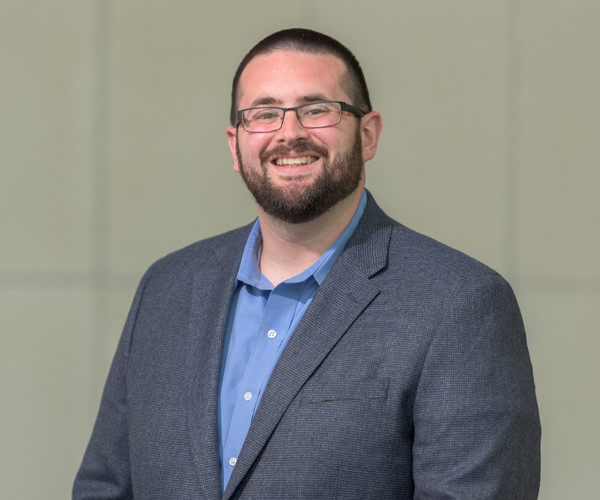Timothy Callaghan.
A political scientist by training, Callaghan received his MA and PhD in political science from the University of Minnesota. Prior to joining SPH, he was an assistant professor in the Department of Health Policy and Management at Texas A&M University School of Public Health, where he also served as chair of the PhD program in health services research and spent 2 years as the elected chair of the School’s faculty council.
Callaghan’s research investigates how politics, policies, and place work together to influence health in the United States. He focuses his work on two key aspects of this. First, he aims to understand how policies influence health access and health outcomes for vulnerable groups, including individuals on Medicaid, rural Americans, immigrants, and those with developmental disabilities. Second, he aims to understand individual health attitudes and behaviors on a variety of prominent health policy topics, including vaccine hesitancy, the opioid epidemic, and surprise medical bills.
Callaghan shared more about his work, what brought him to the field of public health, and why he is excited to join the SPH community.
What brought you to the field of public health, and specifically, to the work that you do now?
My route into public health was a bit unusual. I’m a political scientist by training – holding undergrad, masters, and doctoral degrees in the subject. But I have also always been fascinated by health policy, so I chose a PhD program in political science that would allow me to build expertise in that area. While getting my PhD, I spent 5 years working as the research assistant on a Robert Wood Johnson grant at the university attempting to understand state political decisions under the Affordable Care Act (ACA). I then wrote a dissertation on gubernatorial behavior related to the ACA, which got me job offers as a professor in both political science and public health.
I chose a job as a professor in public health because I was most excited about teaching health policy, and I haven’t looked back! My unique background as someone in both political science and public health shapes the work that I do and led to my primary focus on health politics.
How has your work evolved with the COVID-19 pandemic?
I was in a rather unusual position because in the years leading up to the pandemic, I developed expertise in researching vaccine hesitancy and rural health disparities – both of which became prominent topics of discourse during the pandemic.
Building on my expertise in vaccine hesitancy, I quickly transitioned to investigating COVID-19 vaccine hesitancy and was amongst the first to use survey research to point out we were going to have an issue on our hands with COVID-19 vaccine hesitancy, even before vaccines were available. In the area of rural health, I worked to show that rural Americans were less likely to adopt preventive behaviors to stop the spread of COVID-19. I’ve continued to study vaccine hesitancy and rural health disparities throughout the pandemic and will continue to do so moving forward.
As you transition into your new role, what do you hope to get involved with in Boston and/or at SPH?
I’m a huge sports person, and I also love to be outdoors. Within Boston, I’m sure I’ll get heavily invested in local sports and also spend a lot of time exploring with my dog. I’ll also likely take advantage of the amazing areas around New England for camping, hiking, and much more outdoors.
At my last university, I served as the chair of the PhD program in health services research. I loved that experience, and within SPH, I’d love the opportunity to get involved in mentoring and supporting doctoral students here.
Why did you choose to come to SPH? What made the opportunity stand out to you?
I chose the position at BUSPH for several reasons. First, the school is clearly invested in bringing together leading scholars and top students in a collegial environment, and that was something that I wanted to be a part of. Second, many of my past students, as well as faculty friends who have taken positions at BUSPH, have all spoken incredibly positively about the School, its community, and the support it provides. Their positive view made me want to be a part of the community. Third, Boston is an amazing city, and the opportunity to move to Boston was exciting. Finally, as someone who grew up in Connecticut and still has most of my family in New England, this job provided a wonderful opportunity to move closer to my family.
Looking forward, what are you most excited about with this new role?
I’m most excited about the opportunity to work with amazing students and faculty dedicated to learning, teaching, researching, and applying lessons learned to improve health both locally and across the globe.

 Meet the largest cohort of new faculty in school history
Meet the largest cohort of new faculty in school history